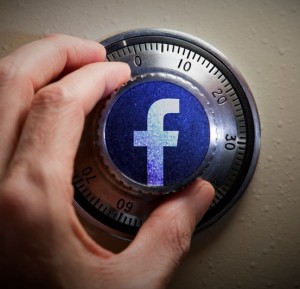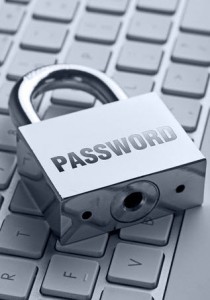Don’t let the internet ruin your relationship—lessons in electronic privacy
 Learning how to deal with privacy in a marriage can cause a lot of problems. Does your spouse know your email password? How about your phone’s security code? Can they access your internet history?
Learning how to deal with privacy in a marriage can cause a lot of problems. Does your spouse know your email password? How about your phone’s security code? Can they access your internet history?
These questions seem trivial, but they touch on a common modern marital concern: electronic privacy.
No matter how independent you are, marriage requires a certain level of openness and sharing with your partner. Honesty between spouses can build trust and strengthen communication — two essential ingredients in a happy marriage.
That said, spouses must respect each other’s right to privacy.
Now that internet technology is a pillar of everyday life, privacy concerns are elevated to an entirely new level. Your daily history–the movies you watch, purchases you make, conversations you have, websites you visit–is recorded online.
A snooping spouse can unearth your most sensitive secrets with just a few clicks.
As a husband or wife, you are entitled to some online solitude, just as you are in the real world. When and where to draw the line between ‘ours’ and ‘mine’ can be unclear in the internet age, but there are ways to navigate this uncharted territory.
Share your passwords
Yes, sharing internet and cell phone passwords is a generally a good idea and common practice. According to a Pew study, 67 percent of Internet users in marriages or relationships have shared passwords to one or more of their accounts with their partner.
 With the exchange of passwords, you should establish clear boundaries. Will you have an open book policy, in which your partner has unrestricted access to your accounts? Or perhaps your spouse can only access your phone during emergencies, when you cannot do
With the exchange of passwords, you should establish clear boundaries. Will you have an open book policy, in which your partner has unrestricted access to your accounts? Or perhaps your spouse can only access your phone during emergencies, when you cannot do
it yourself?
Find what arrangement works best for you both, and make sure you are both clear on what is and is not allowed.
No matter what you decide, sharing passwords will be an exercise in trust. Handing over the keys to your online existence sends a powerful message to your partner. It says, “I trust you and your discretion. I know you will access my accounts responsibly.”
Because remember…
Spousal spying is unhealthy behavior
Make no mistake — access to your spouse’s personal accounts is a privilege, not a right. Avoid abusing that privilege to spy on your partner.
If you scrutinize your spouse’s chats, emails or browsing history without their consent or knowledge, then you are guilty of this marital misconduct.
Unchecked prying can be toxic to a relationship. By spying, you undermine your loved one’s trust and potentially put yourself in a difficult or awkward position.
You could very well uncover something—a past trauma, sexual fetish, professional problem, health concern—that your partner isn’t ready to reveal just yet.
Sharing is important, but it’s vital that couples do it on their own terms. Self-disclosure fosters healthier communication and a happier relationship.
It’s perfectly normal for couples to keep certain thoughts, feelings and memories to themselves. Violating that privacy is wrong and a good way to erode trust.
But what if I think my spouse is cheating?
Please, talk to them first. No good will come from snooping while you are already mistrustful.
Online interactions can be — and often are — misinterpreted. We lose tone and context online and in text messages. We are careless and often say things we don’t mean. A suspicious spouse may uncover a harmless conversation with an ex-lover and assume the worst.
Also, keep in mind the amount of personal information stored electronically is enormous. The odds of your spouse having said or sent something slightly inappropriate are great.
Instead of snooping in secrecy, try asking your spouse about your concerns directly. If you are determined to see the inside of their inbox, then do it together, with your partner’s permission.
My partner invaded my privacy. Now what?
 You may be feeling violated, angry or even a bit embarrassed. Communicate those feelings.
You may be feeling violated, angry or even a bit embarrassed. Communicate those feelings.
Re-establishing trust may take time—and you may need to revoke password privileges in the process—but give your p
artner another chance.
Snooping among couples is shown to be quite common. A 2013 study of more than 2,000 adults found that 62 percent of men and 34 percent of women admitted to hacking into their partner’s mobile phone. Other studies suggest similar trends in breaches of privacy among couples.
In short, you and your partner are not unique, and you will likely be subject to some spying.
Beware of repeated invasions of electronic privacy. If you or your spouse are stuck in a cycle of spying, then it is indicative of a larger, fundamental trust issue in your relationship.
Is your marriage on the rocks due to privacy issues? If so, then I highly encourage you to check out this video. It’s by Brad Browning, and he specializes in saving marriages and preventing divorce. Click here to watch this video.


